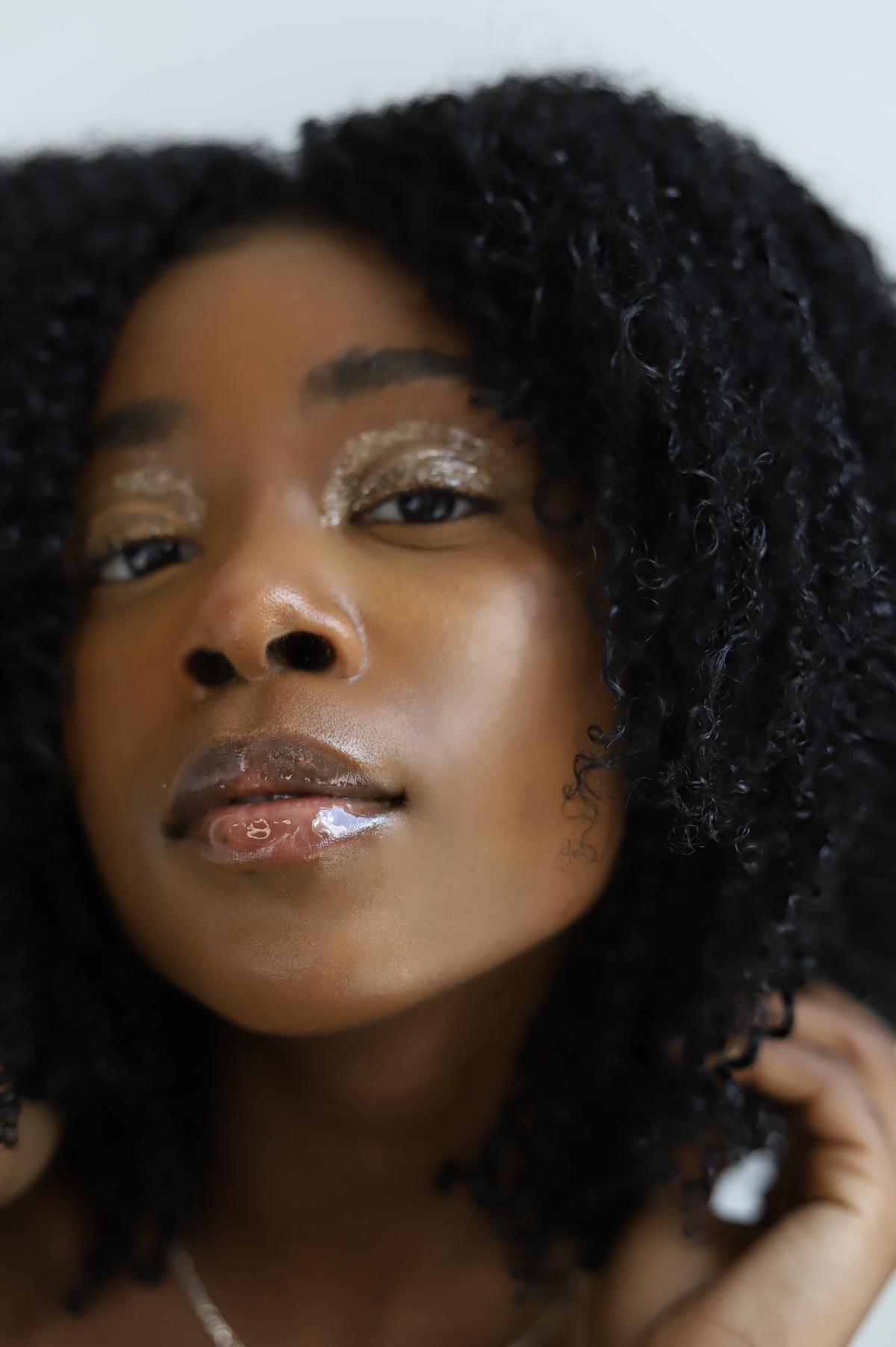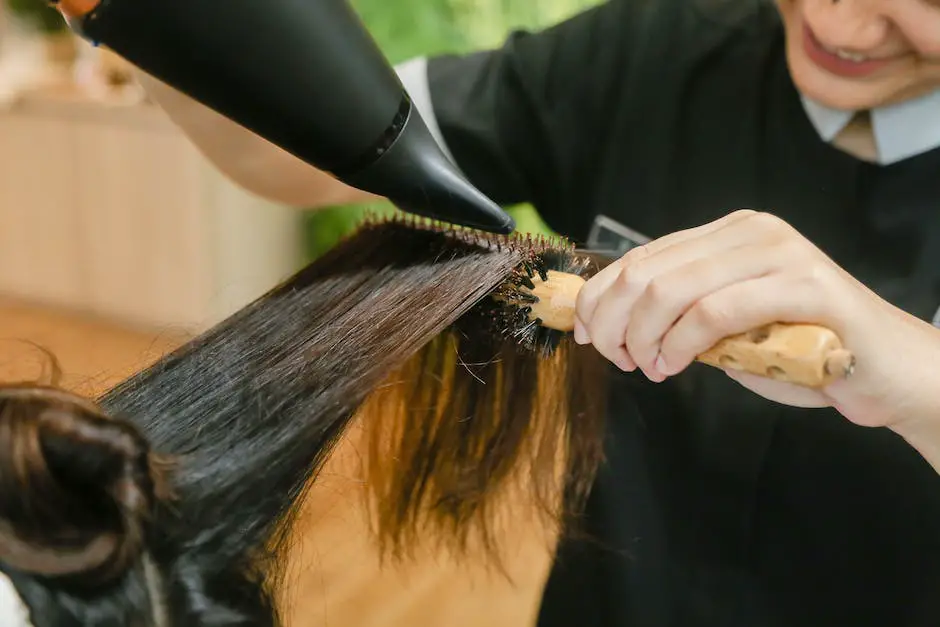With its unique characteristics and growth patterns, 4C hair requires a specific and thoughtful care routine for it to thrive. Before embarking on your natural hair journey, understanding the anatomy of 4C hair, and what it needs to remain healthy is fundamental. One cannot overlook the necessity of hydration for this hair type and exploring natural moisture techniques can be very beneficial. Furthermore, careful selection of natural hair products, designed with 4C hair in mind, could significantly contribute toward the health and vibrancy of your curls. This includes familiarizing oneself with the most effective daily, weekly, and monthly hair care routines. Beyond external applications and treatments, the status of your 4C hair is also strongly linked to your diet and lifestyle. A well-rounded approach, coupled with the right information, can bring about the most beautiful result.
Understanding 4C Hair
Understanding 4C Hair: The Anatomy and Unique Characteristics
4C hair is a hair type that’s known for its tight curl pattern and kinky texture. Unlike other hair types, 4C hair is more prone to shrinkage, often attaining up to 80% shrinkage when not stretched out. Moreover, it can appear coarse but is usually very fine and delicate, with each hair strand often having a zig-zag pattern.
When looking closer, you’ll notice it has fewer cuticle layers than other hair types, which means it has less natural protection from damage. This lack of natural protection and its kinky pattern makes 4C hair more susceptible to dryness and breakage.
The Growth Pattern of 4C Hair
Each individual hair on your head goes through a growth pattern. This pattern is divided into three phases – the anagen (growth) phase, the catagen (transition) phase, and the telogen (resting and shedding) phase. It’s the duration of the anagen phase that determines the length of hair, and for most people, it lasts between two to six years.
In the case of 4C hair, its growth cycle is the same, however, the kinks and coils may cause it to seem like it grows slower. This is because the coily structure of 4C hair can make it harder for the natural oils produced by your scalp to travel down to the ends of your hair, leading to drier, more brittle hair. The regular breakage resulting from this dryness can then give the impression of slow growth or no growth at all.
Proper Care for 4C Hair Naturally
Understanding these characteristics of 4C hair lays the groundwork for learning how to care for it naturally.
To begin with, ensure to keep 4C hair well moisturized as it’s prone to dryness, which can lead to breakage. Apply water-based moisturizers first and then follow up with natural oils like coconut or olive oil to seal in the moisture.
Deep conditioning every week or two with a natural, protein-rich product can strengthen the hair and reduce potential breakage.
Routine detangling is also essential but should be done gently to avoid breakage. It’s recommended to use a wide-toothed comb or your fingers instead of a brush, on damp hair to make it a less painful process.
Lastly, protecting your 4C hair at night is crucial. A satin or silk pillowcase, bonnet, or scarf can help reduce dryness, frizz, and breakage caused by rubbing the hair against cotton pillowcases while you sleep.
By taking these steps, and continually learning about 4C hair, you can ensure that your hair remains healthy, strong, and beautiful. Remember, consistency is key when it comes to natural hair care.

Photo by goodfacesagency on Unsplash
The Importance of Moisture
The Importance of Hydration in 4C Hair Care
Maintaining optimal moisture levels in 4C hair is key to its health and vitality. This hair type, known for its tightly coiled texture, has a natural inclination towards dryness and can be prone to breakage. Hydration is essential as it helps keep the hair strong, flexible, and less prone to breakage and damage. When properly moisturized, 4C hair displays its natural springiness and resilience.
Natural Moisturing Techniques
The first step in moisturizing 4C hair is regularly washing it with a gentle, hydrating shampoo. Avoid products with harsh sulfates, which can strip natural oils from the hair and scalp. Instead, opt for shampoos that are sulfate-free and contain natural moisturizing ingredients such as aloe vera or shea butter.
Following up with a deep conditioning treatment is equally important. These treatments lock in moisture and provide your hair with essential nutrients. Again, opt for products with natural ingredients like avocado oil or coconut milk, both known for their hydrating properties. Ideally, you should deep condition your hair once every week or two, depending on its needs.
The ‘LOC’ method (which stands for ‘Leave-in, Oil, Cream’) is another if not the most popular way to preserve moisture in natural hair. Start by applying a moisturizing leave-in conditioner to your hair while it’s still damp. The second step is applying an oil to your hair to help seal in the moisture from the leave-in conditioner. Finally, applying a cream helps to close the hair cuticles to prevent moisture loss.
The Role of Water and Other Natural Ingredients
Water is the ultimate hydrating agent for 4C hair. Regularly spray your hair with water or a water-based product to keep it hydrated. Additionally, drinking plenty of water can promote hydration from the inside out.
Some natural oils, such as jojoba and argan oil, mimic the oil naturally produced by your scalp and can help moisturize and protect your hair. Shea butter is also excellent for hair as it locks in moisture and provides a barrier against environmental damage.
Aloe vera contains vitamins and minerals that promote hair growth, and its high water content makes it a great hydrator for 4C hair. Additionally, honey is a natural humectant that draws moisture into the hair.
Taking care of 4C hair naturally
Taking care of 4C hair naturally is a holistic process, involving not only the right techniques and products but also thoughtful care of your overall health and well-being. With proper moisture and nutrition, 4C hair can be the epitome of strength, beauty, and natural radiance.

Natural Hair Products for 4C Hair
Understanding 4C Hair
In the world of natural hair, 4C hair is a term used to refer to a specific texture of African descent hair type. The strands are tightly coiled, with a similar circumference to crochet thread, making it prone to dryness and shrinkage. It requires specific care and routine to maintain its beauty and health.
Choosing Right Products for 4C Hair
When choosing products for your 4C hair, it is necessary to focus on hydration and moisture retention. Given the unique structure of the hair strand, natural oils from the scalp have a harder time traveling from root to tip. Thus, moisture gets easily stripped from the hair strand creating the need for external hydration.
Shampoo and Conditioners for 4C Hair
Select shampoo and conditioners that are free of sulfates, parabens, and artificial perfumes. These ingredients tend to dry out the hair, leading to breakage. Instead, opt for products with natural ingredients such as aloe vera, jojoba oil, shea butter, and coconut oil. These components are renowned for their moisturizing properties and they aid in restoring lost nutrients to the hair.
Treatments and Oils for 4C Hair
Deep conditioners, hair masks, and natural oils are also essential for 4C hair maintenance. These treatments help rejuvenate and repair damaged hair, promoting strength and vitality. Important oils for 4C hair include castor oil, olive oil, and avocado oil, which help seal in moisture and reinforce the hair’s natural barrier against breakage and damage.
Leave-in Conditioners for 4C Hair
Leave-in conditioners are another vital product for 4C hair care. Prefer a leave-in conditioner that is rich with hydrating ingredients and can be applied after washing and treatment processes. This helps to maintain the moisture balance and smoothes the hair cuticles, making the detangling process easier, reducing hair fall and facilitating better hair growth.
Styling Products for 4C Hair
For styling, choose products like gels, custards, and creams that do not contain alcohol. Alcohol can cause the strands to become dry and brittle. Instead, try products that are rich in natural ingredients like shea butter, coconut oil, and other essential oils. These not only provide hold for your styles but also provide an additional layer of moisture and protection for the hair.
In conclusion
Taking care of 4C hair naturally involves understanding the hair’s specific needs, including ingredients that promote moisture, hydration, and nourishment. Once you are aware of what to look for, you can choose products that will work best for your hair and keep it healthy and beautiful.

Photo by goodfacesagency on Unsplash
Hair Care Routines & Techniques
Understanding 4C Hair
4C hair, renowned for its tight coils and susceptibility to dryness, requires a special kind of love and attention to keep it healthy and thriving. Due to its unique texture and curl pattern, maintaining moisture, promoting growth, and avoiding breakage are the main focus points of 4C hair care.
Daily Care Routine
Begin each day by hydrating your hair. Keep a spray bottle filled with water to spritz your hair lightly, focusing on the ends, which are the oldest and most vulnerable part of the hair. Lock in the moisture by applying oil such as coconut or jojoba oil.
Protect your hair at night by covering it with a satin bonnet, scarf, or sleeping on a satin pillowcase. This helps maintain moisture and reduce breakage and damage from friction between your hair and your pillow.
Weekly Hair Care Routine
Every week, set aside time for deep conditioning to ensure your 4C hair is moisturized from within. Always detangle your hair before applying conditioner to ensure that the product gets evenly distributed throughout every strand. Use a wide-toothed comb or your fingers to detangle and avoid causing any stress or breakage.
To wash your hair, use a sulfate-free shampoo once or twice a week. While washing, focus mainly on your scalp and let the suds run down the length of your hair when rinsing.
After washing, apply a leave-in conditioner, starting from the ends and working your way to the roots, then seal the moisture using your favorite oil or a hair butter.
Monthly Hair Care Routine for 4C Hair
Once a month, allow your 4C hair to take a break from daily manipulation. This can be achieved by opting for protective hairstyles, such as braids, buns, or twists. But remember, your hair still needs love and care while in these styles. Keep moisturizing and sealing your hair while in its protective style.
Additionally, consider doing a protein treatment once a month, especially if your hair feels weak or brittle. These treatments can replace the protein lost through daily wear and tear and can strengthen the hair shaft to prevent breakage.
4C Hair Protective Styling
Lastly, keep in mind that protective styles are a great way to maintain 4C hair. These styles, which completely or partially contain the ends of your hair, can help to protect your hair from daily manipulation, extreme weather conditions, and over-styling, which can lead to split ends and breakage. Protective styles for 4C hair include braids, twists, Bantu knots, or low buns. But remember, even while in protective styles, your hair still needs to be moisturized regularly to maintain its health.
By following these practices for daily, weekly, and monthly care, you are promoting a healthy environment for your 4C hair to thrive and grow naturally.

Nutrition & Lifestyle
Understanding the Basics: 4C Hair Characteristics
4C hair, one of the most common types of textured hair, is naturally dry and prone to damage due to its tight curl pattern. This hair type requires careful handling, dedicated maintenance routines, and adequate nutrition to thrive.
Role of Nutrition in 4C Hair Care
The condition of 4C hair is directly influenced by your diet. Your hair is made up of keratin, a type of protein, which means adequate protein intake is essential for hair growth. Lean meats, fish, eggs, dairy products, and legumes are all excellent sources of protein.
Omega-3 fatty acids, found in fatty fish, walnuts, and flaxseeds, help to nourish the hair follicles, promoting growth and improvements in hair density. Iron is another key nutrient for hair health, helping to transport oxygen to your hair follicles.
Vitamins, particularly A, B, C, D, and E, play crucial roles in maintaining 4C hair health. Vitamin A aids in promoting scalp sebum production, which can keep hair healthy. B-vitamins — including biotin — are essential for hair growth. Vitamin C aids in collagen production, an important part of hair structure, and helps in absorbing iron. Vitamin D may help in stimulating hair follicles, while vitamin E is known to improve blood circulation in the scalp.
Your diet should therefore include fruits, leafy green vegetables, whole grains, nuts, and seeds. Try to drink plenty of water not only for overall health benefits but for maintaining hair moisture as well.
Lifestyle Choices and Hair Health
Beyond nutrition, your lifestyle plays a significant role in maintaining 4C hair health. Firstly, try to avoid heat styling tools and harsh chemical treatments since they increase dryness and can lead to breakage. Regularly moisturizing your hair and implementing protective styling methods can help retain length and reduce mechanical damage associated with daily styling.
Sufficient rest and sleep are important for your overall health and your hair’s health. During sleep, your body regenerates cells and counteracts the effects of stress.
Exercise not only benefits your body but has a positive effect on your hair health too. Regular physical activity increases blood circulation, delivering oxygen and essential nutrients to your hair follicles.
Minimizing stress is also important. High stress levels can stunt hair growth and even cause hair loss. Mindfulness practices such as meditation, yoga, and deep breathing exercises can help manage stress levels.
Supplements for 4C Hair Growth
While a balanced, nutritious diet is the key, if you’re unable to meet all your nutritional needs through diet alone, consider hair health supplements. Always consult with your healthcare provider before starting any supplement regimen. Biotin and vitamins A, C, D, and E are often found in hair growth supplements.
To sum up, taking care of 4C hair naturally requires a holistic approach that includes nutritional diet, lifestyle modifications, and good hair care practices.

Embracing and caring for your 4C hair is not just about using the right products or techniques; it’s a holistic journey that involves a healthy lifestyle and good nutrition too. Just as our body needs balanced nutrition to thrive, our hair craves certain vitamins and foods to grow and maintain its vitality. Therefore, by integrating a well-rounded diet into your lifestyle, alongside your tailored hair care routine, your 4C hair can bloom into its most healthy, resilient, and beautiful state. The result? Hair health that not only looks good on the outside but is also deeply rooted on the inside. After all, the journey to loving your hair should always be one that encourages overall wellness and self-love.

Leave a Reply